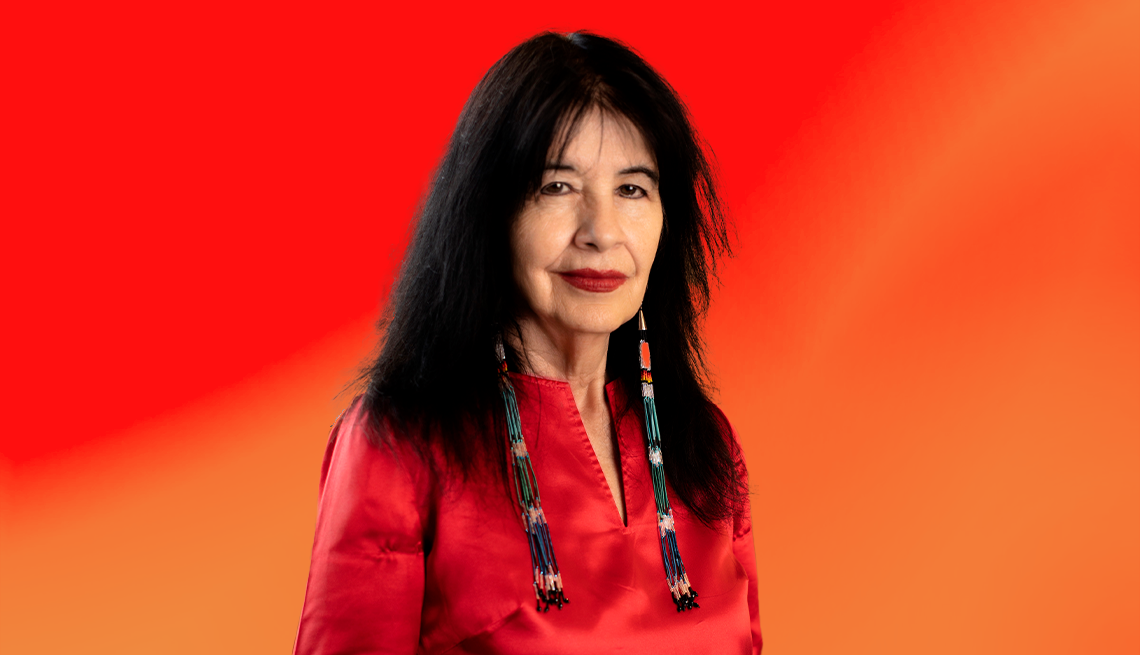
Joy Harjo, 72, is a creative tour de force with a powerful voice. She’s written 10 books of poetry, three children’s books, two memoirs and several plays. An accomplished musician who plays saxophone and flute, she’s also produced seven albums. In 2019, she was named the country’s first Native American Poet Laureate. She was reappointed twice, serving in the position until 2022. A member of the Muscogee Nation, Harjo also lends her voice as narrator of the groundbreaking PBS series Native America. Season 2 premiered Oct. 24 and features engineers, musicians, astronauts, politicians and artists who draw upon Indigenous traditions to forge a better future.
You were originally a pre-med major in college. What made you switch your focus?
[The medical profession] always had its appeal, and every once in a while, up until a few years ago, I would think, OK, what do I have to do to get into medical school? But I realized that there are other ways, and all of us are essentially healers. And what healers do really, they’re not healing, they’re enabling. Every one of us can do it through a poem. You can do it through the way you speak to someone. Everyone of us is a healer of sorts. There’s other kinds of healing modalities — art and culture — that are possible. So I never gave that up. I had no plans to be a poet. When I was at the University of New Mexico, I was involved in Native rights movements, and that’s when I started writing. And my writing had started because of the need for justice for Natives and for all life.
What kind of doctor did you want to be?
I was going to be a surgeon, which is kind of interesting. But if I were to go into the medical field now, I think I would probably be a midwife.
What advice would you give your younger self?
Probably about 20 years ago, I was having anxiety or worried about some endeavor [and] an amazing teacher of mine … she was an elder from a pueblo in New Mexico [and] she looked at me and said, “Just be yourself.” I’ve come to realize how profound that is. Just be yourself. My first thought was, Well, of course, who else am I? But then as the years have gone on, I think, What would have happened, when I was younger and I got myself into some snarls because of not being myself? Or trying to be whatever I thought someone else or some other system thought I should be? I mean, it’s very powerful. You say that to a young person who is too caught up in social media. … You’re forming yourself. You’re taking your cues from family and community, from images, and what does it mean in the midst of this plethora of overwhelming images? What does it mean to be yourself? It is overwhelming today.
